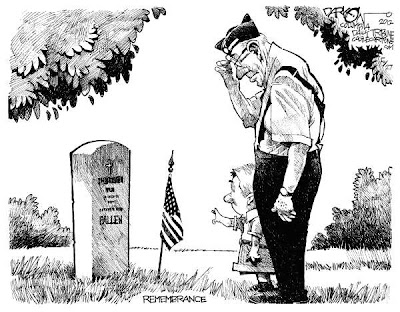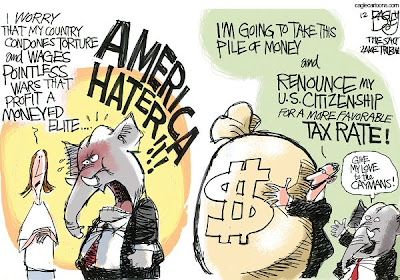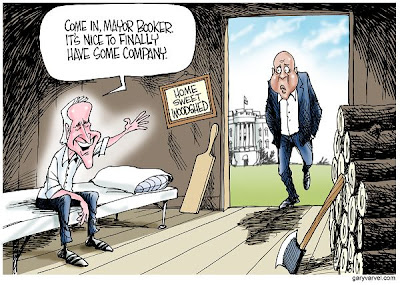Voter suppression can either be direct or indirect. Direct suppression is action by one individual or a group that directly prevents another individual or group from voting or having their votes counted. Indirect suppression is more prevalent in this 15th amendment age.
Gerrymandering has always been the favorite tactic of the ruling party to ensure reelection and expansion of influence. The practice continues today, with both major political parties guilty. Stuffing the ballot box is another technique, but one that is no longer easy to accomplish.
Traditionally most voter suppression in this country has occurred in southern states… the “old south.” Not much has changed so far as that is concerned, although the area did jump political parties in the mid-60’s right after LBJ signed the voting rights act. Today those states are solid Republican, but for more than 100 years prior they were consistently Democratic.
Then and now those states of the old Confederacy devised creative techniques to keep minorities (blacks in the old days… add Hispanics today) and poor whites away from the ballot box. In the latter third of the 19th century (prior to 15A) violence and outright fraud were the tools of choice. Crude, but it worked. Until the Feds stepped in, old south Democrats used violence as the primary means of direct voter suppression, but federal law enforcement was at odds with the Supreme Court.
In 1877 a white militia group in Colfax, Louisiana attacked a group of blacks attempting to defend Republican officeholders. The militia group was attempting to take control of the courthouse by force, and killed over 100 of the black defenders.
The Feds indicted three of the militia members under the Enforcement Act of 1870. In U.S. v. Cruikshank, SCOTUS dismissed the indictments by faulting the prosecutors for failure to identify a Constitutionally guaranteed right that had been violated. With this decision the Waite court ushered in the era of Jim Crow.
Another major tactic used by the Democrats in those days was to win elections by fraud… by tossing out non-Democratic votes or counting them as if Democrat… this was common in the Southern states prior to the age of legal disenfranchisement. Again the federal government took action and again SCOTUS defeated the efforts.
From 1880 to 1901 Congress brought 26 cases of direct ballot box fraud, again using the Enforcement Act of 1870. One such case was U.S. v. Reese, in which the Feds brought charges against Kentucky election inspectors for refusing to accept and count ballots for a black Republican candidate. SCOTUS dismissed the indictments and the case was the death knell for the Enforcement Act… gutting any provision for punishment of election officials that arbitrarily denied citizens the right to vote.
Reese gave license to the Democrats to openly discriminate without fear of federal prosecution, but it also brought a ton of unfavorable publicity. To avoid the spotlight the southern states started moving toward more subtle forms of disenfranchisement… indirect vote suppression.
Georgia started the ball rolling in 1877 by being the first state to enact a poll tax. This was challenged, but SCOTUS hadn’t matured enough yet and such laws were consistently upheld right up to the middle of the 20th century. Over the next 25 or so years each of the former confederate states (including Texas) followed suit enacting a variety of poll tax schemes. In some states these taxes cut black voter turnout by as much as half.
40 years later, in Breedlove v. Suttles, a white man challenged Georgia's poll tax by alleging it to be a violation of the 14th (because women not registered to vote were exempt but blacks were not) and the 19th Amendment. SCOTUS struck again, rejecting the arguments by claiming that poll taxes were unrelated to attempts at voter suppression, and that the taxes were legitimate attempts to generate revenue. This was hogwash on its face as none of the states had attempted to collected past due taxes before.
Right up until the 1964 Civil Rights Act and the 1965 Voting Rights Act SCOTUS remained eaten up with discrimination. Finally in Harman v. Forssenius the Warren court quashed Virginia’s poll tax and started an era of fairness. Then the next year, in Harper v. Virginia, SCOTUS ended the concept by declaring all poll taxes unconstitutional under the 14th amendment’s equal protection clause. It also ushered in an era of states rights arguments and ground roots efforts to impeach Earl Warren.
When Johnson signed the Civil Rights Act in 1964 it is reported that he said that by signing that bill the Democrats had lost the south for a generation. LBJ had no idea how prophetic that statement was, nor how badly he had underestimated the bigotry of the region. Whites fled the Democratic party in droves… never to return, and it has been three generations since President Johnson inked his signature. If anything the attempts at vote suppression are worse now than in 1964... only they are perpetrated by the Republicans instead of the Democrats.
Race and nationality based voter disenfranchisement is endemic. Where once we had poll taxes and literacy tests denying Republican voters, and now we have the same people doing the same thing for the same reason, just for the opposite party. The newest indirect means of voter suppression is the photo identification requirement, and the sole purpose is to deny prospective Democratic voters access to the ballot box.
So why do we need a photo ID to exercise a Constitutionally guaranteed right? Proponents claim widespread voter fraud, but even the most vitriolic point to only a few score of alleged incidents, most of which turn out to be false. Voter fraud is already a crime and in each of these alleged incidents the violator could have been prosecuted, yet to date there have been only a very few cases where a photo identification would have prevented the crime.
The Bush Justice Department spent years trying to prove that fraud was a problem and found a rate of about 0.00002 percent. In 2006 right here in Texas Attorney General Greg Abbott issued one of his frequent, shrill press releases with the titillating title, “Let's StampOut Voter Fraud in Texas.” In this press release he was unable to name a single case of fraud that would have been stopped by voter ID, but his language made it sound as if hoards of illegals were violating ballot boxes across the state... going so far as to cite the infamous 1948 case of "Ballot Box 13."
Republican disenfranchisement proponents claim that almost everyone has some form of photo identification, which is mostly true. The Brennan Center for Justice says that 89 percent of Americans could produce an acceptable photo ID, leaving only about 11 percent, or about 23 million eligible voters, without the identification required to cast a ballot. Only 23 million?
To cover this rather dramatic problem, the Republicans offer to provide free or low cost identification cards. All that is required is for the citizen to make a trip down to the DMV and stand in line for perhaps a few hours. The ID card will be provided free of charge for those capable of withstanding that gauntlet. But in order to qualify for this card the prospective voter must produce a birth certificate. If this requirement were in place in earlier years my grandmother would have effectively been denied the right to vote.
My grandmother was American Indian (1/2 Comanche and ¼ Kiowa), arguably making her more a citizen of this land than those who would deny her the right to vote. She was not born in a hospital so there was no official record of birth. When she was born in 1881 her family did not “register” their children. She also never in her life drove a car, and thus never had any form of identification that would have qualified her under these new laws.
She could have applied for and obtained a birth certificate, I suppose, but there goes the “free” ID. Here in Texas the Vital Statistics Office charges $22 plus postage for a birth certificate, and she would have had to produce documentation that does not exist. Seems difficult to justify all of this with a 14th Amendment guarantee of a right to vote, or the 24th Amendment's ban on charging anyone to vote.
It may be different in other states, but the largest population of Texans without photo identification live many miles away from any drivers license office. If these people don’t already have a drivers license it is unlikely they have a car, so how are they going to get to the DMV to apply for the free photo ID card? The DMV office is open regular business hours, so if the ID’less individual has a job they will have to take time off, and if they don’t drive someone else will have to take time off as well. This “free” ID is getting mighty expensive.
The problem is exacerbated for senior citizens or people who work multiple jobs jobs, yet according to the Brennan Center, the elderly, the disabled and the poor are the populations most likely to be affected by these photo ID laws. These are also the people more inclined to vote for a Democrat. Does the intent become a little more clear?
Proponents also say that we must present photo ID to buy alcohol, drive a car or board a plane. Perhaps, but there are no constitutional guarantees for these things while five out of 27 amendments to our Constitution have language guaranteeing the right to vote. This argument is the classic red herring.
Voter ID offers no positive effect. These are laws in search of a crime. If they pass in each of the states in which they are proposed, Millions of Americans could be denied a right that the framers of our Constitution considered basic. Citizens who have voted for decades could now be denied a right that is enshrined in our Constitution.
The advertisements for right wing politicians argue for this disenfranchisement. They contain language like “Restore America!” and “Protect the Constitution,” yet they would promote laws to deny Americans the right to vote for the candidate of their choice.
Tell me what is patriotic about that.
UPDATE: Efforts by Florida Governor Rick Scott and his band of merry men to suppress the non-Republican vote have been denied by the federal courts. Floridabigots Republicans used the same, tired voter fraud song and dance, and the judge saw right thru it. Florida was quite active in the dominionistic efforts to deny American citizens their right to vote. Scott ordered a purge of voter registration rolls (of people who might not vote for him), the Florida legislature passed a voter ID bill and some really onerous laws restricting voter registration drives. These have all been struck down.
UPDATE: Efforts by Florida Governor Rick Scott and his band of merry men to suppress the non-Republican vote have been denied by the federal courts. Florida
###

















































































































































